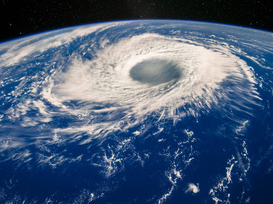 I am watching the people in my world emerge from the isolation and trauma of our long dance with COVID. They are eating in our local restaurants and shopping along our sunny streets. They are reconnecting with old friends and taking picture of their kids all dressed up for winter formal and celebrating milestones once again. They are smiling and laughing with genuine joy. There is a feeling of relief that is palpable, a collective exhale.
I am watching the people in my world emerge from the isolation and trauma of our long dance with COVID. They are eating in our local restaurants and shopping along our sunny streets. They are reconnecting with old friends and taking picture of their kids all dressed up for winter formal and celebrating milestones once again. They are smiling and laughing with genuine joy. There is a feeling of relief that is palpable, a collective exhale.
And there is also a haunting awareness that we are resting in the eye of this most recent storm waiting for the next shoes to fall. So much has happened that we are still integrating, so many losses that we are still grieving, so many lessons that we find ourselves still resisting. We seem determined not to notice that there is so much more wreckage yet to come. For the past two years, COVID has been simultaneously a very real problem and a huge distraction from even bigger and more potentially destructive problems. Climate change. Social injustice. Climate change. Systemic racism. Climate change. The collapse of democracy. Climate change. Hatred and divisiveness. We know those dragons are out there; we can hear them breathing in the night.
My firstborn turned 33 this weekend, and I took time to reflect back on my journey with him from a happy infant to a busy toddler to an ocean-loving teen and now a successful hard-working professional who still loves to surf at sunrise. I allowed myself to revisit the breathtaking vulnerability of being a first time mother to such a fragile small human. I observed how it was much easier 33 years ago to ignore the damage we were doing to our Earth and the dangers it would pose for the world in which my babies – and their babies- would live. My parental fears from 33 years ago seem rather quaint in the glare of the fiery breath of today’s dragons.
During this reflective birthday week, Courtney Martin wrote a beautiful piece on her ‘the examined family’ blog entitled “Parenting in various apocalypses” in which she asks “what do kids today need in order to navigate this planet on the brink of so much?” Her answers are always grounded, circular, seeking.
…the thing we most need to do is nothing. To know that we don’t know. Instead of feigning parental knowing, we must pay attention. Our kids will show us what muscles they need to grow, what mindsets they need to invent or reclaim, what survival skills they need to learn for the future they will live into, a future we can’t possibly imagine because our brains and hearts were formed at a time without fire seasons or cell phones. If the country seems unrecognizable to you right now, as I think it does for many of us, consider that there might be a signal in that and that it might not be all bad. We have old eyes, old ways of seeing gender and CO2, our desires and our dreams. They were born in this world at this time–a journey we can’t control and are not, in fact, expert in at all. So I suppose the question becomes, not what we can teach them so that they might survive, but what they can teach us, so that we can let go?
And at the same time, Sojourner’s most recent magazine arrived in my mailbox with a cover article “Defying the Dragon: Raising our Children for Joy amid Climate Catastrophe”by Lydia Wylie-Kellerman. She writes ‘We welcome our children into a vulnerable space of fear and uncertainty. And that is a beautiful thing. Trust these hallowed spaces of unknowing to be fertile ground for our kids’ imaginations and for all of our hearts to grow.’
My own sons are now tall and handsome men who are miraculously grounded and competent and sturdy; as I grow older, their flexibility and strength gives me increasing comfort. I know the grand-babies will come one day soon and I hold space for the great mystery of how they will arrive perfectly prepared for the hurting world into which they have been born.
By Kathe Schaaf